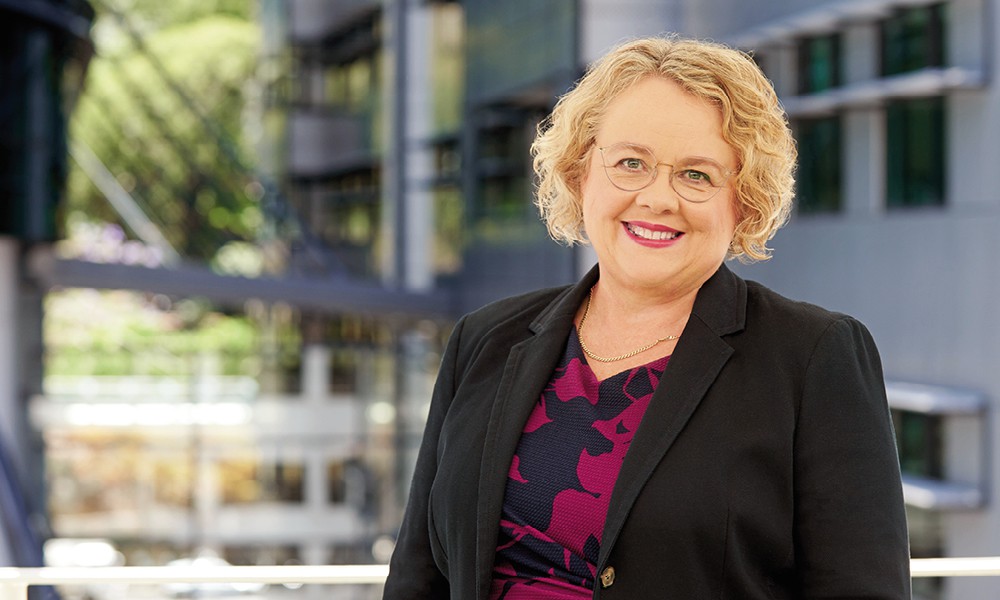This content has been archived. It may no longer be relevant
The granting of parole or early release to Queensland prisoners has long been a controversial topic which has fuelled many a fi ery debate – usually on talkback radio or in media reports – on occasions when hard-core or infamous criminals are released back into the community.
The cloak of secrecy surrounding the parole process and whether, when, why and how a prisoner is to be released and managed or given support as part of their rehabilitation has not helped placate the naysayers or ill-informed members of the community who believe many inmates should never be released, or at least serve the full term of any sentence imposed by the courts.
That perceived absence of transparency and the community’s lack of faith in the Queensland Parole Board, as it was then named, was validated in July 2016 with the brutal stabbing murder of 81-year-old Townsville woman Elizabeth ‘Beth’ Kippen by a paroled prisoner, 32, who was also charged with the attempted murder of a man and woman, aged 28 and 26 while he was on parole.
News reports of the murder and all its gory and horrific details so outraged the public that it prompted Queensland Premier Annastacia Palaszczuk to order a review of the parole system by then eminent Queen’s Counsel and former Solicitor-General, now Court of Appeal President, Walter Sofronoff
in August 2016.
The result of the extensive Queensland Parole Review was the release of the Sofronoff report on 16 February 2017. The Government embraced the key recommendation of establishing a new, independent and professional parole board with a full-time president, two deputy presidents, professional board members, and part-time community board members who would represent the diversity of Queensland.
The formation of the Parole Board Queensland in mid-2017 resulted in the scrapping of three separate former boards – the Queensland Parole Board, South Queensland Regional Parole Board and the Central and Northern Queensland Regional Parole Board.
The newly minted board saw the appointment of eminent veteran criminal lawyer and Queen’s Counsel Michael Byrne as its president. Mr Byrne’s illustrious legal career commenced when he was fi rst called to the Bar in 1977 and took silk in 1993. Apart from acting in numerous high-profile criminal trials – including being defence counsel for Gerard Baden-Clay – his stellar career included Mr Byrne being an acting District Court judge, the Deputy Director of the Office of Public Prosecutions and head of the Queensland Organised Crime Commission of Inquiry.
“The concept of parole is often controversial and its purpose misunderstood.”
Michael Byrne QC
Experienced former police detective and renowned specialist criminal lawyer Peter Shields, who also represented numerous infamous criminals including Baden-Clay, Queensland’s first convicted serial killer Leonard John Fraser (in 2003) and former Billabong boss Matthew Perrin, was named as Mr Byrne’s deputy.
Barrister Julie Sharp was named as the other deputy. She started her career as a law clerk with Legal Aid more than 20-years ago and progressed through the ranks there, ultimately becoming in-house counsel at Legal Aid. She then went to the private bar where she focused on criminal defence work but also prosecuted, and did work in other areas of the government and in the coronial inquest sphere.
The board in its current form consists of 37 members, which include:
- four full-time professional board members with a legal or health practitioner qualifi cation
- 24 community board members with varied diverse and cultural backgrounds
- three nominated public service officers (from Queensland Corrective Services)
- three nominated police representatives
The workload of the board has increased significantly since its inception, with a 24% increase in the number of applications decided between 2017-18 and 2018-19. And, of the 3129 applications made in the last financial year there has been a 13% increase in the number of applications granted and a reciprocal percentage decrease in those refused. In 2017-18, 1736 of the 2517 requests for release were granted, whereas last year 2565 or the 3129
applications were approved.
And as Board President Michael Byrne QC explains, there is a very good reason for the granting of early release – and it has nothing to do with prison overcrowding.
“The concept of parole is often controversial and its purpose misunderstood,” Mr Byrne said in the board’s most recent annual report.
“It is not a ‘get out of jail free card’ and it is not an indication of a ‘soft’ approach to crime and punishment.
“It is a method developed to prevent reoffending. Research tells us paroled prisoners are less likely to reoffend than prisoners released without parole.
“Common sense tells us success on parole and beyond depends on access to adequate support for prisoners to address the root cause of their criminal conduct — for example, poverty, homelessness, substance abuse and mental health issues.
“Along with Community Corrections, and rehabilitation and reintegration resources, proper investment in the Board is an investment in community safety.”
Mr Byrne said prisoner numbers had increased by 4% since the new board was established, while applications for parole release had increased by more than 25%.
“(Last year) the Board considered 17,413 matters impacting citizen liberty, based on evidence-based risk assessment,” he said.
“Community safety is always the Board’s highest priority.
“The work of the Board has become increasingly voluminous and complex. In one fortnight this year, Board members were required to consider 32,000 pages of material for 449 parole matters over 12 meetings.
“The Board’s commitment to fair, evidencebased decision making and community safety is genuine and resource intensive. Each case is considered on its own merits on the basis of all evidence before the Board. Where the evidence is perceived to be insufficient to make a sound decision, the Board will seek what it needs.
“The Board meets nine times per week (excluding out-of-session meetings for urgent consideration of parole matters). Each meeting is chaired by me or a Deputy President.”
Mr Byrne said that due to the resulting workload, he was hopeful that State
Government Budget commitments would result in additional staffi ng so the Board could deliver “tightened legislative timeframes”.
“It is hoped additional positions approved by government in the latest budget will alleviate the pressure felt by all at the Board (last) year.”
Community safety relies on a well-run, efficient parole system
The sweeping reforms and recommendations made by Walter Sofronoff QC – the head of the Queensland Parole System Review – revealed an important insight into why it was essential that prisoners, when released back into the community as most of them inevitably are, need to be responsibly paroled to “ensure the safety of the community”.
Judge Sofronoff, who is the current Queensland Court of Appeal President, said in his 2017 report that a reconstituted parole board needed to play a vital role in Queensland’s criminal justice system to protect the community.
“The only purpose of parole is to reintegrate a prisoner in the community before the end of a prison sentence to decrease the chance that the prisoner will ever reoffend,” he said.
“Its only rationale is to keep the community safe from crime. If it were safer, in terms of likely reoffending, for prisoners to serve the whole sentence in prison, then there would be no parole.
“It must be remembered also that parole is just a matter of timing; except for those who are sentenced to life imprisonment, every prisoner will have to be released eventually.”
Judge Sofronoff said that, at the time he conducted the review, “most research” suggested most parolees were less likely to reoffend than prisoners released after serving their sentence in full and without the assistance and support provided to parolees.
“In truth…(parole) is nothing more than a method that had been developed in an attempt to prevent reoffending,” he said. “It works to achieve that purpose to a degree; like the criminal justice system itself, it will never fully achieve the goal of eradicating offending.
“The only realistic issue is how it can be improved to reduce reoffending by increments and to avoid cases of serious offending on parole.
“The goal is perfection but perfection will always be out of reach.”
To that end, the current Board Deputy President Peter Shields said that positive outcomes that have been achieved are due to the “complete restructure” since July 2017, including the running of the board like a law firm, modernising language, reducing time and ensuring the board always “make(s) evidence based decisions’’ on whether an inmate is granted or refused bail.
Tony Keim is a newspaper journalist with more than 25 years’ experience specialising in court and crime reporting. He is the QLS Media manager and in-house journalist.
This story was originally published in Proctor April 2020.














Share this article